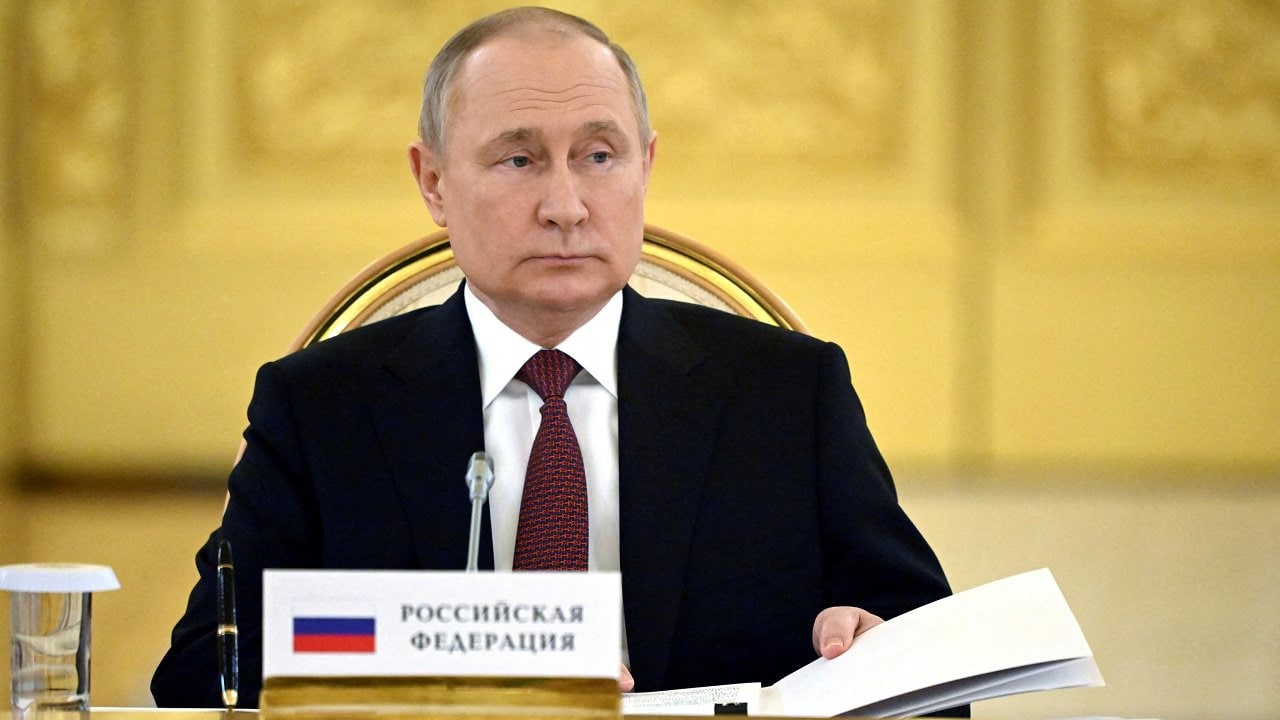There has been chatter for months, even years, about Vladimir Putin’s health.
Speculation that he has anything from Parkinson’s disease to cancer has spread around the Internet.
If the Russian president someday became truly incapacitated for medical reasons or if he died, what would that mean for the war effort?
There would be a period of confusion and a power vacuum that would likely pause the war. His prime minister is constitutionally required to take over should Putin step down.
This person has no military experience. But the new president would eventually be replaced by one of Putin’s more prominent allies who could lead the army in war.
What Are Various Sources Saying About His Health?
Let’s examine some of the scenarios about the state of Putin’s health. Eagle-eyed Internet users spotted a scar on Putin’s neck during Orthodox Easter services last month.
Other social media reports, especially those on Telegram, have noted that sometimes the mercurial supreme leader walks with a limp, appears to have something wrong with his right arm, and grips the table tightly where he sits during cabinet meetings.
Therefore, he could be in severe pain.
Putin Is Sick? It Could Be Cancer
A Ukrainian military intelligence officials believes that these maladies are caused by cancer, although that diagnosis has not been confirmed. But this cancer, if it does exist, could spell the worst for Putin and could even take his life, Kyrylo Budanov said in January. But Budanov did admit that this was wishful thinking and that he hoped that Putin would die “very fast.”
Another Danish intelligence analyst reckons that Putin may not be terminal, but he could have a form of cancer that would require him to take hormone treatment which is causing his “moon-shaped face.”
Putin also had a lingering cough that was on display when he made his New Year’s address to the nation.
What Is He Hiding By Working From Home?
The Russian president is spending more time these days working from his residence outside Moscow in Novo-Ogaryovo. He is reportedly conducting video meetings from his home that could be evidence that he does not want to be seen outside or in his office at the Kremlin.
A Russian Telegram channel called General SVR said he was ailing from “severe pain” in his head, blurred vision, and a “numb tongue.” However, this social media source that his believed to run by a former Russian intelligence officer has put out questionable health reports before, saying that Putin was dying of cancer last year and that he underwent a surgery on his abdomen.
The Sun news tabloid said Putin was suffering from Parkinson’s disease in 2020, but that proved to be unfounded. If he had Parkinson’s, it would have been difficult if not impossible for Putin to lead the war effort.
He Is Simply Getting Old and Is Serving in a Stressful Position
What is more likely is that Putin, 70, is showing the signs of old age that have made him slow down. If he were stressed, which is believable, he would probably have headaches and show other signs of fatigue. Cancer is not likely or else he would have been incapacitated with chemotherapy, radiation treatments, and even surgery. If that were the case, Putin would require an indefinite leave of absence from his duties and so far that has not happened.
Should Putin ever be taken out of the mix with a serious illness that would lead to death, he would be replaced by Prime Minister Mikhail Mishustin.
Mishustin, an economist by training, is not from the security services or the military and he would have difficulty showing the backbone necessary to prosecute the war.
He would be the next in line, according to the Russian constitution, and elections would be held eventually. The Duma, Russia’s parliament, could then likely suspend the constitution’s succession of power and election stipulation and allow someone like Nikolai Patrushev, the head of Russia’s Security Council, to become president.
Patrushev would be able to prosecute the war. He would likely defer to the general in charge of the conflict, General Valery Gerasimov, and fighting would continue.
Thus, there is ample speculation about Putin’s health, but this wishful thinking has not been verified. Death by disease or other sickness that would prompt his replacement is a low probability event. If it happened though, this would create an operational pause in the fighting in Ukraine until the political dimension and chain of command is worked out, but it would not likely end the war. Putin, alive or dead, still means that Russia will keep fighting.
MORE: Joe Biden Won’t Send F-16 Fighters to Ukraine
MORE: Why Putin Should Fear the F-16 Fighter
Author Expertise and Experience:
Serving as 19FortyFive’s Defense and National Security Editor, Dr. Brent M. Eastwood is the author of Humans, Machines, and Data: Future Trends in Warfare. He is an Emerging Threats expert and former U.S. Army Infantry officer. You can follow him on Twitter @BMEastwood. He holds a Ph.D. in Political Science and Foreign Policy/ International Relations.

